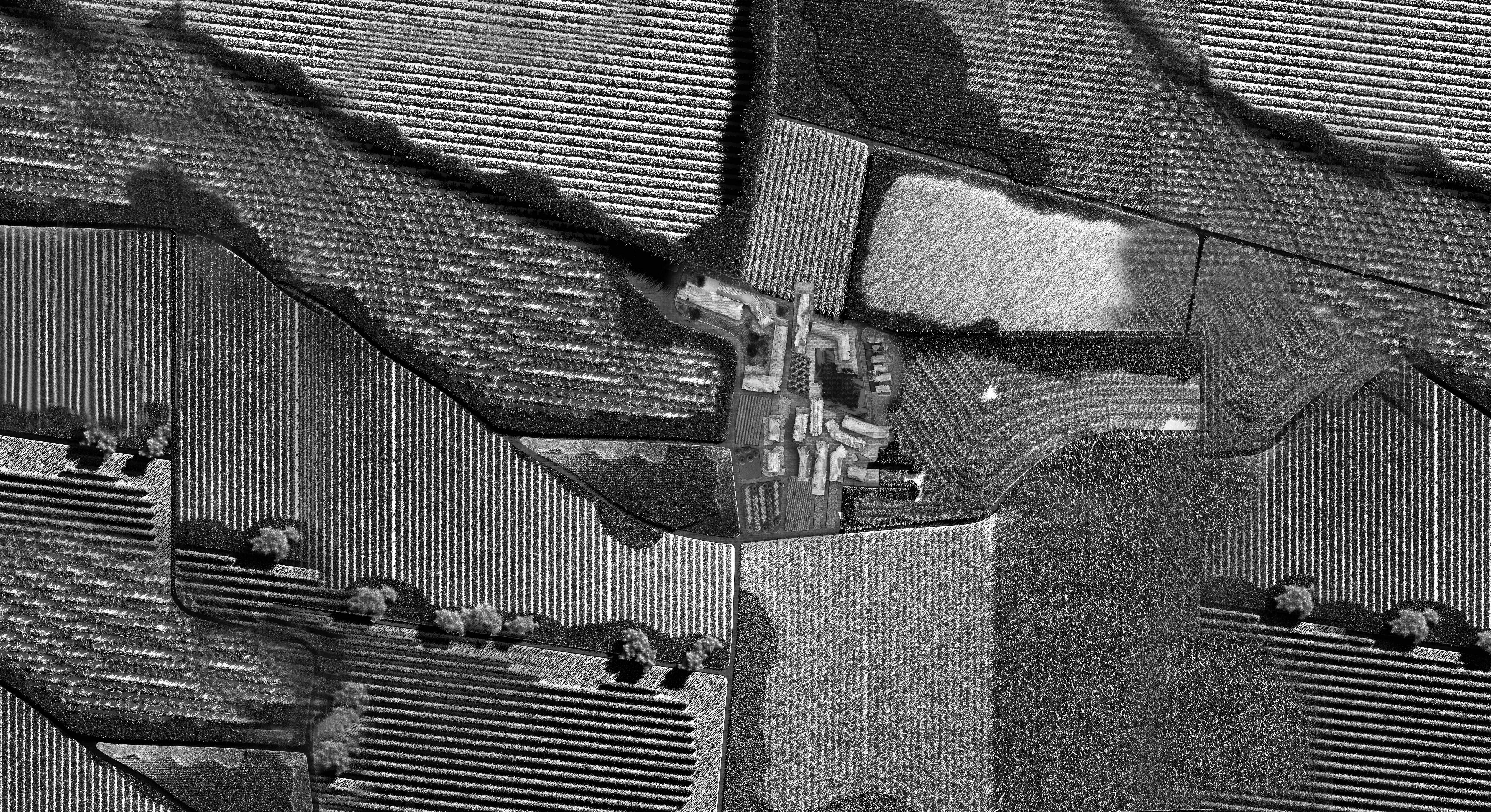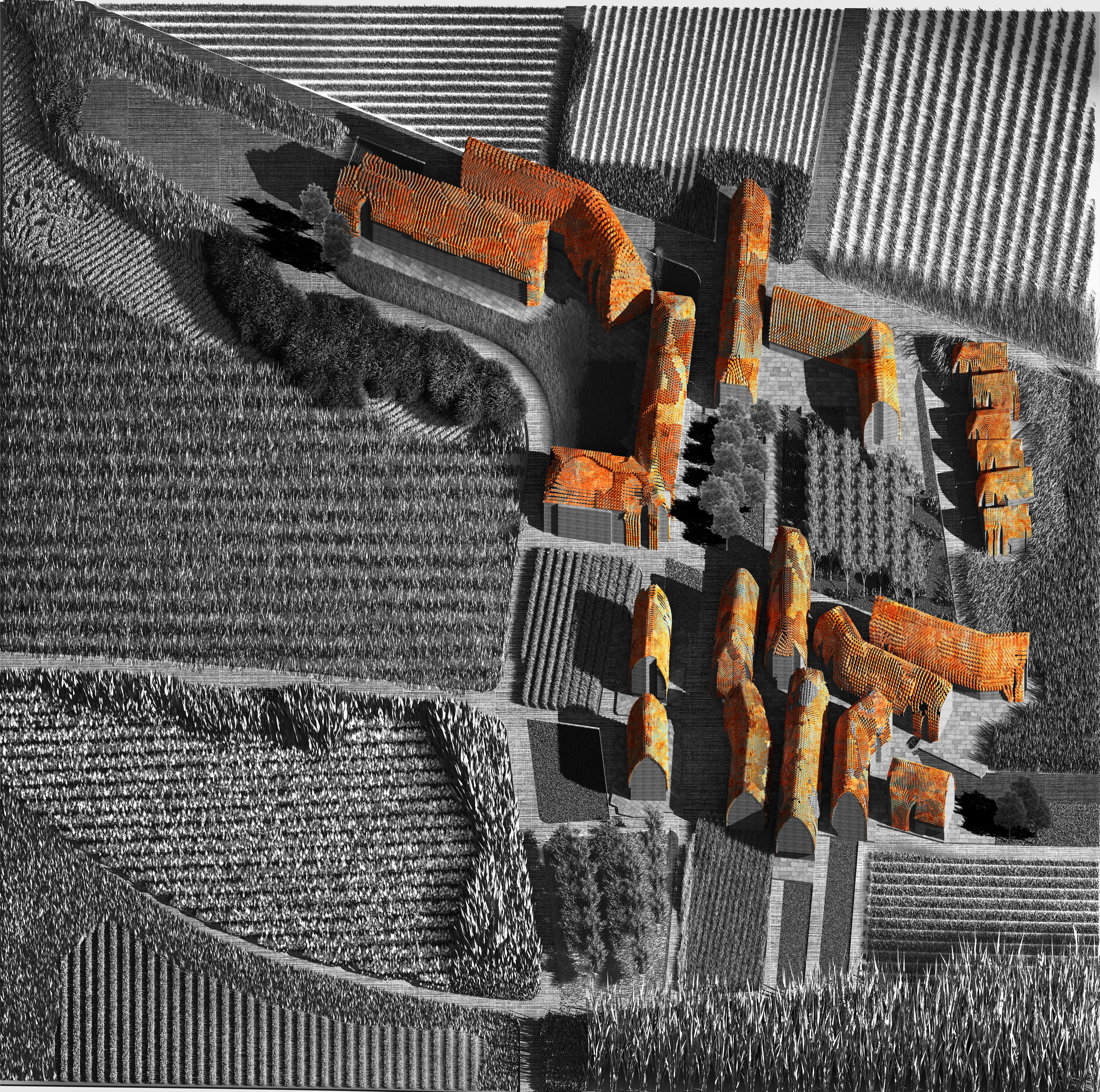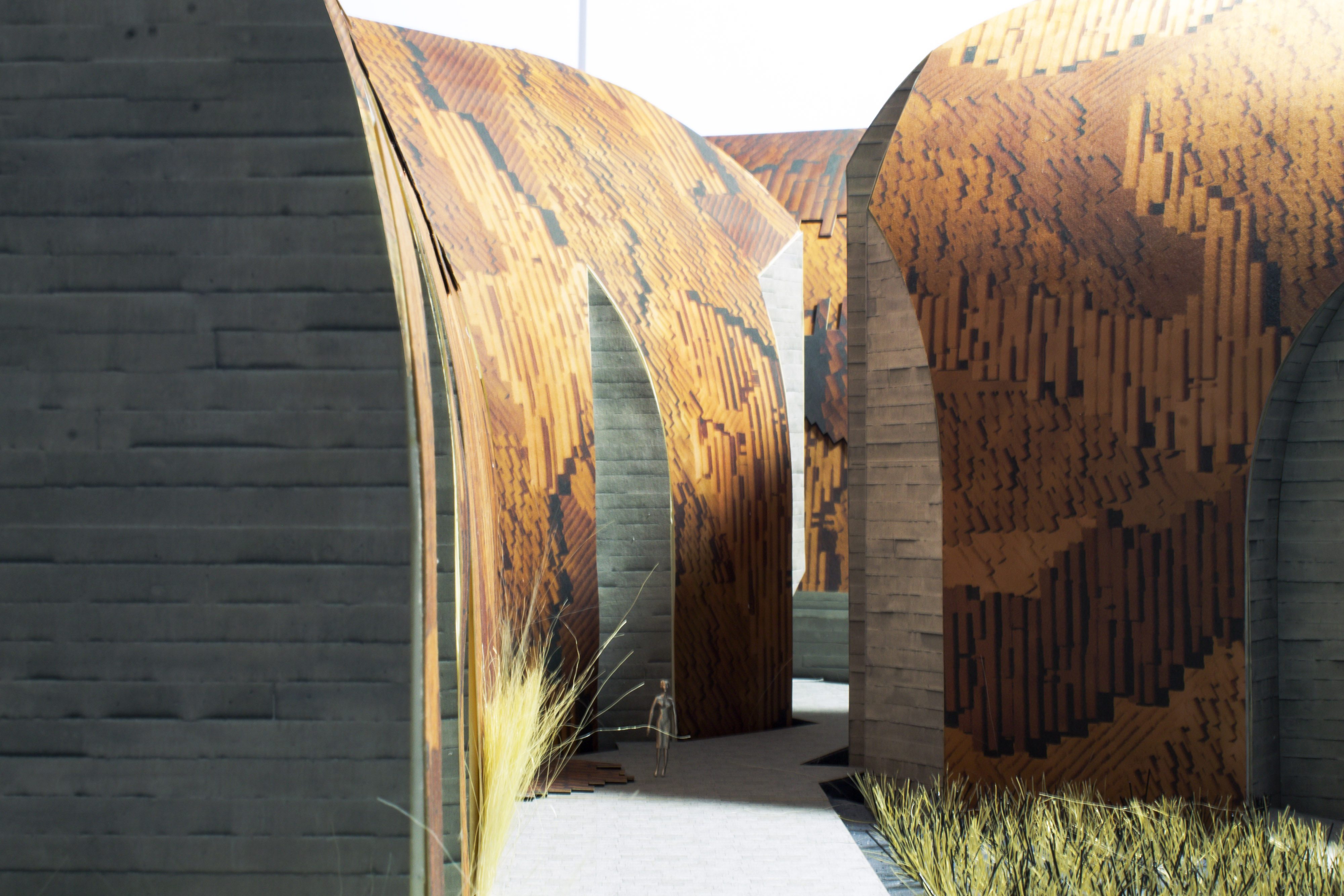Strange Peripheries | Fall 2017 | University of Pennsylvania | Mixed-Use Hotel |
Carcassonne, France | Pressing Matters Vol. VII
Carcassonne, France | Pressing Matters Vol. VII
Collaborator: Jesus Elizondo | Critic: Georgina Huljich
The countryside is changing. According to Rem Koolhaas, we must now consider the countryside for cultural, architectural and political reasons. The countryside is becoming more temporary as European villages “thin” out with a diminishing intensity in their use while increasing land coverage. This promotes concentrated low density, proto-urban conditions.

Countryside Context View
Located in the French Countryside, this proposal plays on the tension between the traditional definition of the countryside as a place for agricultural production, and the nearby located medieval city of Carcassonne, which displays hostile, autonomous qualities associated with the fortress typology. Programmatically, it exploits the richness of culture and landscape by embedding an apprenticeship program for chefs around the world to pioneer the Avant Garde restaurant industry.


Oblique View and Plan View
When in the countryside, it is unusual to experience anything in between the dichotomy of the ‘medieval’ and countryside ‘barn’ typology. By starting with the tectonic sensibilities associated with the medieval city, and erasing boundaries of the fortress, this proposal brings together two typologies which cannot be more opposite in the social, cultural and political realm. It removes preconceived ideas of the authority associated with the fortress, redistributing it to areas outside the fortress. This is done by looking specifically at the defamiliarization of terracotta tiles, a material commonly used in the countryside, as well as using representation that plays with estrangement and scale – making the ordinary seem strange.


Oblique Cluster Model Photo and Elevation




Model Photos